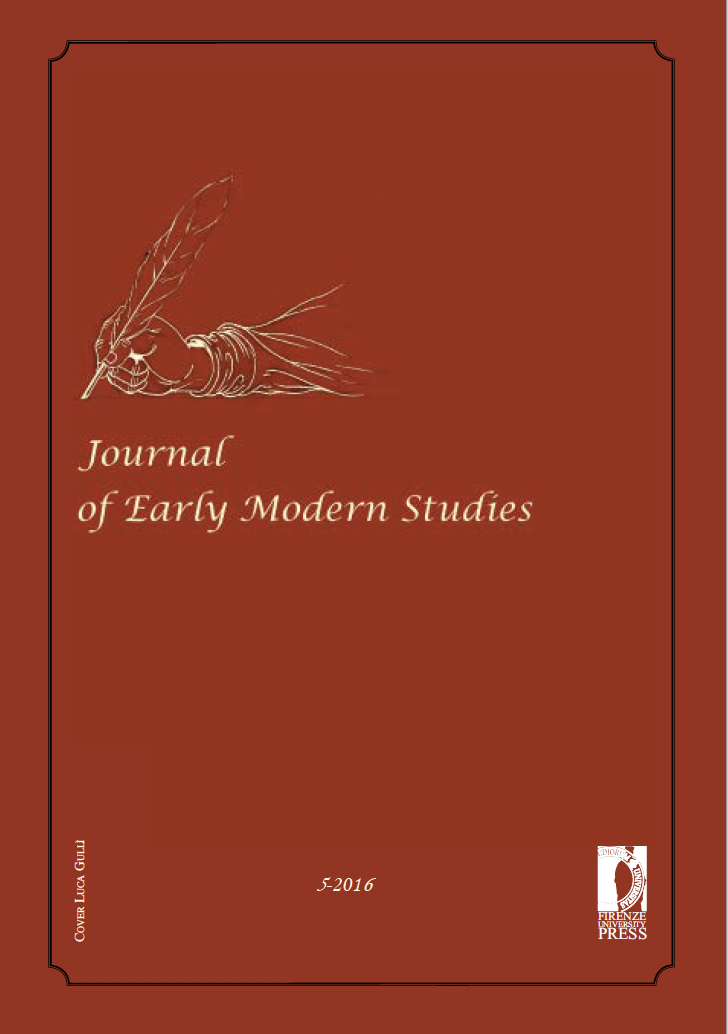Abstract
Over the last ten years there has been a struggle within Shakespeare studies between the vast majority of scholars who have remained committed to the orthodox view on Shakespeare’s authorship of the plays that bear his name and a much smaller group of scholars, working with profoundly different levels of rigour, who have sought to question this position. Recently there has been a degree of agreement that it is more productive to approach the issue in terms of acknowledging the collaborative nature of early modern play writing. It is noticeable, however, that for the literary critics and historians involved in this debate collaboration seems to end at the playhouse’s door. There is an assumption that the collaborators who produced early modern drama were all writers and not the other people involved in the production of Tudor and Stuart plays. This is profoundly problematic. In this article, Thomas Betteridge and Greg Thompson propose a non-textual approach to the authorship question through the use of performance as a research technique. The first part of the article will map out the current ground of Shakespeare authorship studies while the second part is an account of a performance as research workshop carried out by Betteridge and Thompson with students from Brunel University, London


